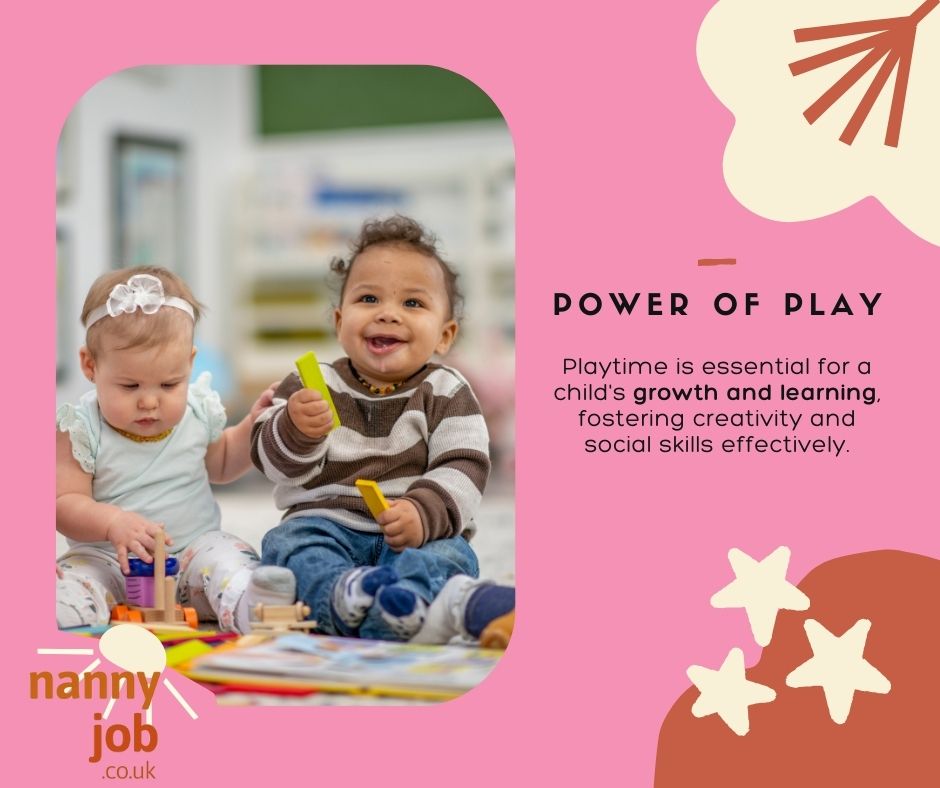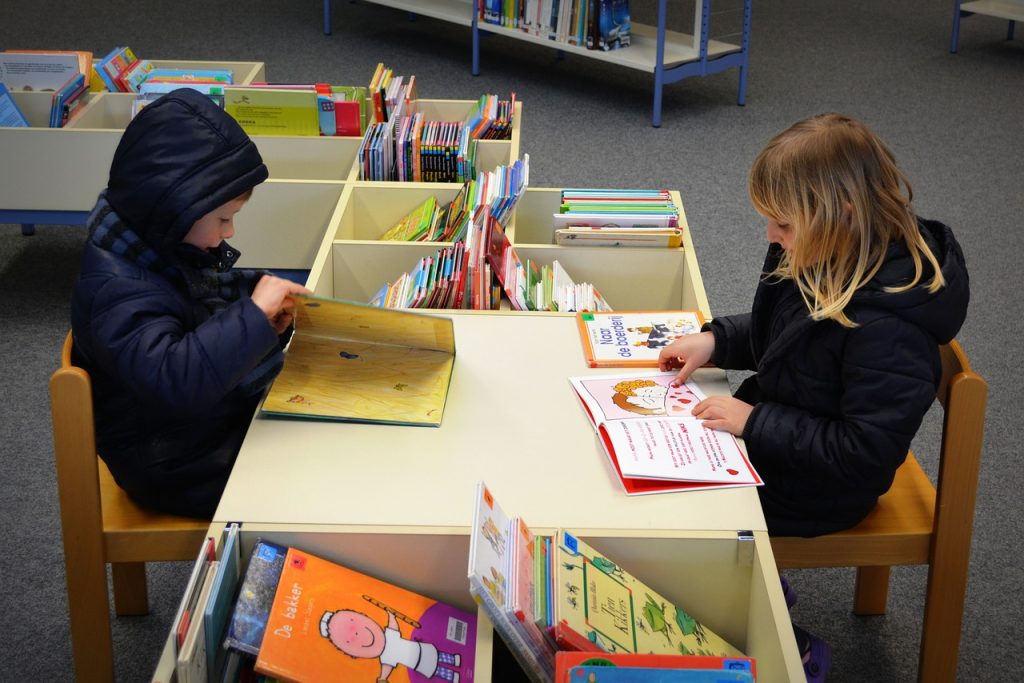Introduction
Play is more than just fun—it’s essential for a child’s development. Whether it’s building sandcastles, role-playing as superheroes, or exploring the great outdoors, play helps children develop critical skills that shape their growth and learning.
From improving physical coordination to enhancing social and emotional intelligence, the power of play cannot be underestimated. As parents, nannies, and caregivers, we have the opportunity to encourage play that nurtures creativity, problem-solving, and resilience in children.
In this blog, we’ll explore the physical, social, and cognitive benefits of play and share fun activity ideas to incorporate into a child’s daily routine.
The Benefits of Play for Child Development

- Play enhances problem-solving and critical thinking skills.
- It introduces concepts like cause and effect, shapes, numbers, and language skills.
- Activities like puzzles, building blocks, and role-playing encourage creativity and curiosity.

- Play teaches children how to cooperate, share, and communicate with others.
- Role-playing helps them understand different perspectives and emotions.
- Playing with others helps develop confidence and resilience in social situations.

- Outdoor play promotes gross motor skills (running, jumping, climbing).
- Fine motor activities like finger painting, sensory bins, and crafts help strengthen hand-eye coordination.
- Play encourages exercise and healthy habits, reducing screen time and sedentary behavior.

- Play provides an outlet for children to express emotions and reduce stress.
- Engaging in imaginative play allows them to work through fears or challenges in a safe way.
- Physical activity releases feel-good hormones, boosting mood and self-esteem.
Fun Play Ideas to Boost Development

- Sensory Bins: Fill a container with rice, sand, or pasta and let kids explore with scoops and small toys.
- Water Play: Use cups, spoons, and floating toys in a tub of water.
- Messy Play: Let kids experiment with finger painting, shaving cream, or playdough.

- Dress-Up Play: Encourage children to pretend to be doctors, firefighters, or chefs.
- Tea Parties & Kitchen Play: Using pretend food and tea sets teaches social skills and creativity.
- Dollhouses & Figurines: Acting out scenarios helps develop storytelling skills.

- Obstacle Courses: Use cones, hoops, or household items to create fun movement challenges.
- Treasure Hunts: Hide small objects and give kids clues to find them.
- Nature Exploration: Collect leaves, rocks, and sticks to learn about the natural world.

- LEGO or Blocks: Encourages creativity, planning, and fine motor skills.
- Puzzles & Matching Games: Improves concentration and spatial awareness.
- Board Games: Helps with turn-taking, patience, and strategy.
How Caregivers & Nannies Can Encourage Play




Conclusion
Play is a child’s first classroom, their way of exploring the world, and a key to healthy development. Whether it’s running outdoors, engaging in sensory activities, or pretending to be superheroes, every moment of play helps children learn and grow.
As caregivers, parents, and nannies, our role is to encourage, facilitate, and participate in play, helping children build the foundation for a lifetime of learning and joy.
Let’s embrace the power of play and give children the freedom to imagine, create, and thrive!



